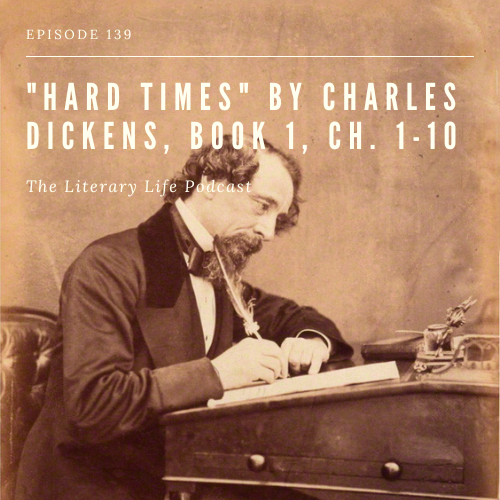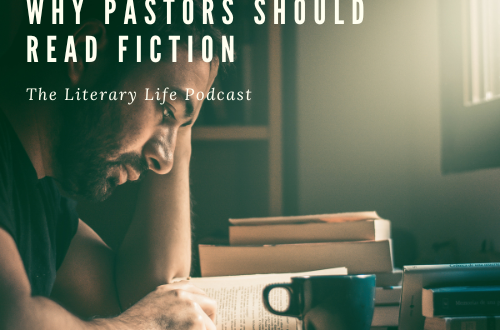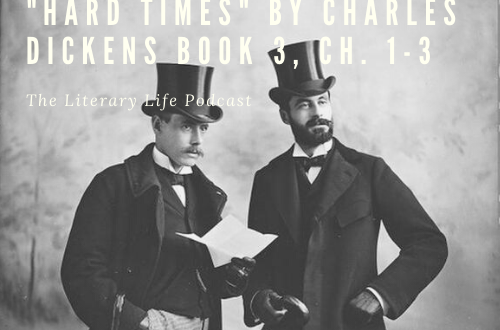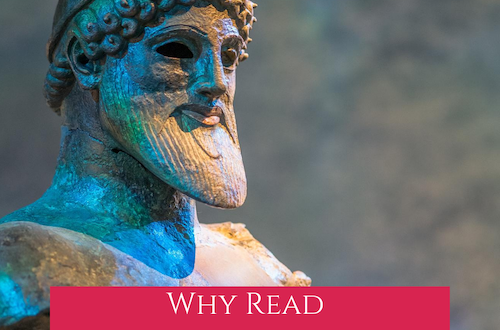
Episode 139: “Hard Times” by Charles Dickens, Bk. 1, Ch. 1-10
On this week’s episode of The Literary Life, we begin our fall series on Charles Dickens’ Hard Times. Angelina, Cindy and Thomas start out the book chat by covering some of the differences between this book and other novels of his, as well as how to approach Dickens in general. They also discuss misrepresentations of Dickens as a social reformer, the allegorical and fairy tale elements of his works, and what keys to look for as you read through Hard Times. Thomas talks about Utilitarianism in educational reform, and Cindy highlights the ideas of Charlotte Mason in connection with Victorian times. Angelina brings out the references to imagination in these first chapters and the danger of distorting the child’s imagination.
Purchase the recordings of our 2022 Back to School Conference at MorningTimeforMoms.com. That is also where you can get signed up for Dawn Duran’s webinar on “A Reasoned Patriotism.”
You can also get the replay of Thomas’ webinar on Evelyn Waugh or register for Angelina’s mini-class on The Taming of the Shrew at houseofhumaneletters.com.
Listen to The Literary Life:
Commonplace Quotes:
But already the Utilitarian citadel had been more heavily bombarded on the other side by and lonely and unlettered man of genius. The rise of Dickens is like the rising of a vast mob. This is not only because his tales are indeed as crowded and populous as towns: for truly it was not so much that Dickens appeared as that as hundred Dickens characters appeared.
G. K. Chesterton, from The Victorian Age in Literature
The first qualification for judging any piece of workmanship from a corkscrew to a cathedral is to know what it is–what it was intended to do and how it is meant to be used.
C. S. Lewis, from A Preface to Paradise Lost
Never be without a really good book on hand. If you find yourself sinking to a dull, commonplace level, with nothing particular to say, the reason is probably that you are not reading, and therefore, not thinking.
Charlotte Mason, as quoted by Essex Cholmondeley in The Story of Charlotte Mason
from “Among School Children”
by William Butler Yeats
Labour is blossoming or dancing where
The body is not bruised to pleasure soul,
Nor beauty born out of its own despair,
Nor blear-eyed wisdom out of midnight oil.
O chestnut tree, great rooted blossomer,
Are you the leaf, the blossom or the bole?
O body swayed to music, O brightening glance,
How can we know the dancer from the dance?
Book List:
Cranford by Elizabeth Gaskell
The Life of Our Lord by Charles Dickens
A Child’s History of England by Charles Dickens
“Why Should Businessmen Read Great Literature?” by Vigen Guroian
“The Fantastic Imagination” by George MacDonald
Support The Literary Life:
Become a patron of The Literary Life podcast as part of the “Friends and Fellows Community” on Patreon, and get some amazing bonus content! Thanks for your support!
Connect with Us:
You can find Angelina and Thomas at HouseofHumaneLetters.com, on Instagram @angelinastanford, and on Facebook at https://www.facebook.com/ANGStanford/
Find Cindy at morningtimeformoms.com, on Instagram @cindyordoamoris and on Facebook at https://www.facebook.com/cindyrollins.net/. Check out Cindy’s own Patreon page also!
Follow The Literary Life on Instagram, and jump into our private Facebook group, The Literary Life Discussion Group, and let’s get the book talk going! http://bit.ly/literarylifeFB
Subscribe to The Lit Life:









One Comment
Pingback: